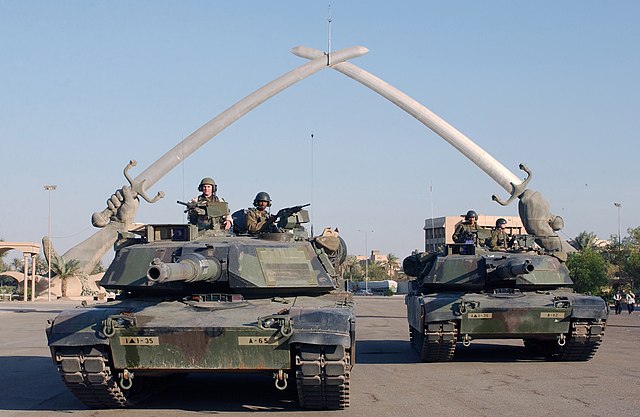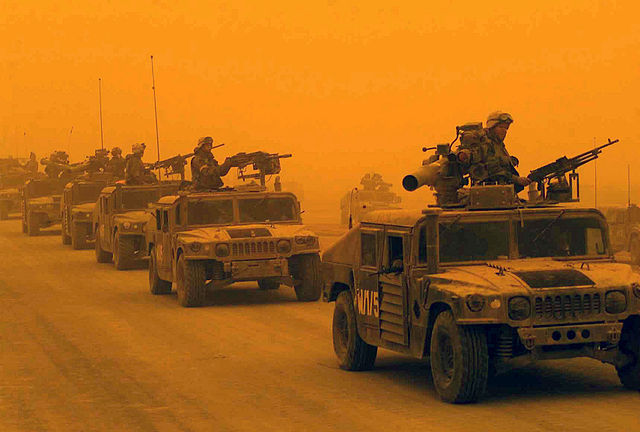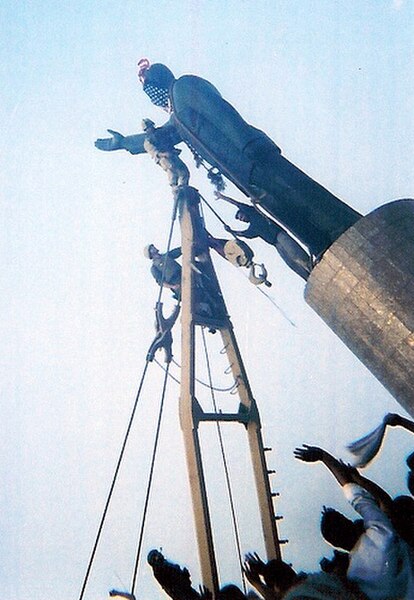United Nations Security Council and the Iraq War
In March 2003 the United States government announced that "diplomacy has failed" and that it would proceed with a "coalition of the willing" to rid Iraq under Saddam Hussein of weapons of mass destruction the US and UK claimed it possessed. The 2003 invasion of Iraq began a few days later. Prior to this decision, there had been much diplomacy and debate amongst the members of the United Nations Security Council over how to deal with the situation. This article examines the positions of these states as they changed during 2002–2003.
Colin Powell holding a model vial of anthrax while giving a presentation to the United Nations Security Council
M1A1 Abrams pose for a photo in front of the "Hands of Victory" in Ceremony Square, Baghdad, Iraq.
The United States-led invasion of the Republic of Iraq was the first stage of the Iraq War. The invasion began on 19 March 2003 and lasted just over one month, including 26 days of major combat operations, in which a combined force of troops from the United States, the United Kingdom, Australia and Poland invaded Iraq. Twenty-two days after the first day of the invasion, the capital city of Baghdad was captured by coalition forces on 9 April after the six-day-long Battle of Baghdad. This early stage of the war formally ended on 1 May when U.S. President George W. Bush declared the "end of major combat operations" in his Mission Accomplished speech, after which the Coalition Provisional Authority (CPA) was established as the first of several successive transitional governments leading up to the first Iraqi parliamentary election in January 2005. U.S. military forces later remained in Iraq until the withdrawal in 2011.
Image: U.S. Marines with Iraqi PO Ws March 21, 2003
Image: Iraqi Sandstorm
Image: US soldiers watch Iraqi paramilitary headquarter's burn Samawah, Iraq April 2003
Image: Flag on Saddam Firdos Square Statues face 2003 04 09






